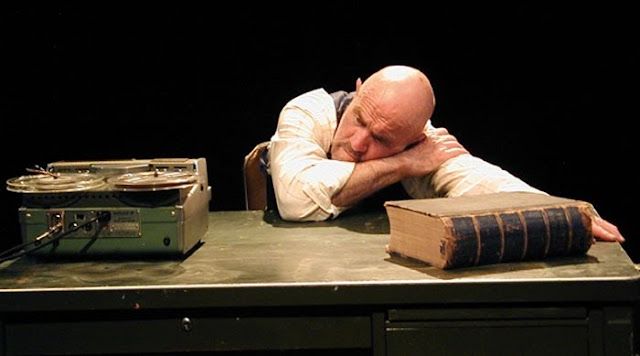British philosopher shares his thoughts on the Samuel Beckett play
 Well, I'm back in the United Kingdom after a month in California. I arrived at Heathrow Airport's Terminal 5 early yesterday morning, and jetlag has prevented me from snatching more than five or six hours of sleep. As a result, I'm spending my early morning hours drinking plenty of water and catching up on a spot of reading.
Well, I'm back in the United Kingdom after a month in California. I arrived at Heathrow Airport's Terminal 5 early yesterday morning, and jetlag has prevented me from snatching more than five or six hours of sleep. As a result, I'm spending my early morning hours drinking plenty of water and catching up on a spot of reading.
Just a little earlier on I spotted an interesting blog from British philosopher Simon Critchley, writing online for the New York Times. His article, published back in May, is a response to readers' comments on a previous post, discussing life, the pursuit of happiness, and Samuel Beckett:
[...] I was delighted that one reader recalled Beckett’s Krapp’s Last Tape, which is a hugely important play to my mind, much more so than Waiting for Godot. The wizened, elderly Krapp listens obsessively to the recorded voice of a younger version of himself, who is both more hopeful and more idiotic. The portion of tape to which he listens repeatedly is an epiphanal moment with a lover while punting on a lake:
'I lay down across her with my face in her breasts and my hand on her. We lay there without moving. But under us all moved, and moved us, gently, up and down, and from side to side.'
This passage from raises two points that came up in some of the comments: firstly, Krapp’s experience of bliss is shared with another, with a former lover. This addresses the criticism that Rousseau’s picture of happiness was solitary, indeed selfish and narcissistic. Well, narcissism is a complicated matter and we should not forget that after obsessively contemplating his image in water, Narcissus drowned himself. But the point is well-taken and I tried to acknowledge it at the end of the piece: the feeling for existence can be had with others. Perhaps it is best had with others in the experience of love, whether it is love of another person, as for Krapp, or one’s cats and dogs, as came up more than once in the comments, or indeed in being face to face with a tiger, as one reader wrote.
Secondly, the passage from Beckett reminds us that this transient experience of bliss is a recollected experience, a work of memory. This is the lost time that we go in search of. It is one thing to experience happiness in the moment; it is another to recall such memories months, years or even decades later. This is one of the reasons why we feel compelled to write at all. [Read More.]


